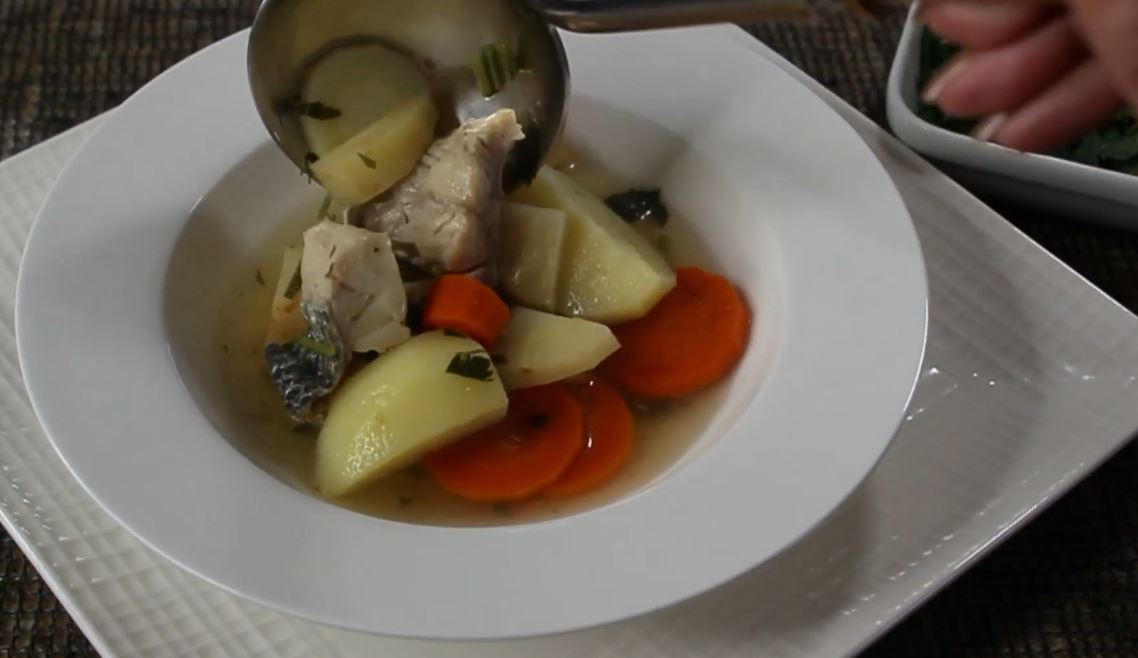
In the constantly changing world of cuisine, some recipes stand out for their genuine simplicity rather than their flamboyance. This very idea is embodied in Ukha, a traditional Russian fish and vegetable clear soup. Rich in centuries of tradition, this dish began as a simple broth made from wild game in the eleventh century rather than as a fish recipe. Ukha didn’t embrace its current aquatic identity until the fifteenth century. By the 17th century, it had made its way into royal courts thanks to sophisticated methods and tastefully simplified ingredients.
A Calm Culinary Rebirth in the Culture of Wellness
This remarkably effective Russian staple has gained renewed attention in the last ten years due to the global demand for healthy, clean meals. Ukha is a simple yet incredibly flavorful dish made with a variety of root vegetables and herbs along with whole fish, typically including the head and tail. Proper cooking produces a very clear, nutrient-rich broth, which is further enhanced by a dash of vodka, an ancient Russian trick used for clarity rather than flavor.
| Component | Description |
|---|---|
| Primary Name | Ukha (уха) – Russian Fish and Vegetable Clear Soup |
| Main Ingredients | Whole fish (e.g., trout, carp, salmon), potatoes, onions, carrots, celery, bay leaves, peppercorns, dill, parsley, optional vodka |
| Traditional Cooking Method | Open fire or stovetop; occasionally Instant Pot or pressure cooker for modern variations |
| Serving Style | Served hot, garnished with fresh herbs and lemon wedges; accompanied by rye or sourdough bread |
| Dish Category | Clear broth soup (non-dairy, non-cream based) |
| Best Fish Options | Salmon, trout, pike, perch, snapper, bass, or cod |
| Historical Significance | Dates back to the 11th century; evolved from a wild game soup to a refined fish dish by the 17th century |
| Modern Trends | Integrated into wellness diets; increasingly featured in global food blogs and YouTube tutorials |
| Reference Recipe Site | Immigrant’s Table – Ukha Recipe |
It’s Culinary Storytelling, Not Just Soup
Ukha is surprisingly inexpensive, very easy to prepare, and very adaptable. Allowing each component—fish, root vegetables, and herbs—to shine without needless complexity is the key. The soup is especially helpful for wellness diets, particularly those that emphasize anti-inflammatory, gut-healing foods, because of its pure intention. Ukha has become more than just a recipe in health-conscious places like Scandinavia and California; it has become a representation of slow, mindful cooking.
From Datchas in Russia to Global YouTube Stardom
Viewers from Toronto to Tokyo have been introduced to the rustic roots of Ukha through YouTube channels such as NastassjaCanCook and Rivet Gardener, which feature backyard versions. The cultural significance of making Ukha outdoors—where every stir of the ladle feels ritualistic—is highlighted by these videos, which are frequently shot close to rivers or forests. In the meantime, food influencers have introduced the dish into wellness circles that might have previously disregarded Eastern European cuisine by equating it with contemporary counterparts like bone broth and detox soups.
The Purification Function of Clear Broth and Vodka
The addition of a tiny bit of vodka binds and dissolves the fish oils that naturally float on top of the broth, making the liquid incredibly clear. This method elevates clarity as a visual and culinary value in a way that is both practical and strangely poetic. For those who are unfamiliar with this custom, it’s a taste explosion without going overboard.
| Source | Recipe Style | Prep/Cook Time | Notable Twist |
|---|---|---|---|
| Olga’s Flavor Factory | Whole fish, classic stovetop | 60 minutes | Uses herb peels to enhance broth flavor |
| Allrecipes | White fish fillets, lemon | 30 minutes | Adds lemon for brightness, deviates from classic |
| Immigrant’s Table | Trout with vodka shot | 90 minutes (Instant Pot) | Uses vodka for clarity, includes detailed heritage notes |
| NastassjaCanCook (YouTube) | Outdoor fire-cooked Ukha | Variable | Authentic open-fire method; ideal for gatherings |
| Alla’s Yummy Food | Hybrid stovetop recipe | 45 minutes | Focuses on dill and parsley for vibrant finish |
Influencer Twists and Modern Variations
Because of Ukha’s adaptability, there are many variations. Present-day chefs frequently add turmeric, lemon zest, or even ginger for depth, while purists only use whole fish and conventional herbs like parsley and dill. Recent TikTok videos have reshaped the soup for fine-dining settings by showcasing experimental versions served cold with caviar toast or enhanced with shellfish. However, the core of Ukha never changes: healthy ingredients cooked to their purest form.
Effects on Nutrition and Cultural Memory
This soup is a memory distilled for many Russians, bringing back memories of slow-cooking over an open fire with grandparents or of summers spent fishing as a child. It is impossible to create that emotional bond. Ukha has become a symbol of cultural resilience due to the rising popularity of heritage cooking, which is centered on reverting to ancestral wisdom. Because it remains firmly anchored in its roots, it transcends trend cycles.
Why It Is Important in the World’s Culinary Scene
Ukha serves as a shining example of how traditional foodways can be both environmentally conscious and nutrient-dense in the context of growing health consciousness and sustainability. It supports nose-to-tail cooking in a remarkably elegant way by utilizing fish parts that would otherwise be thrown away, such as bones, heads, and tails. This makes it a dish that is remarkably in line with the future of food rather than merely a relic from the past.
FAQs
What kind of fish works best for Russian clear soup?
Salmon, trout, pike, perch, or bass are ideal for rich flavor and clarity.
Can I make this soup vegetarian?
Yes, substitute fish with mushrooms or seaweed for a brothy, umami-rich alternative.
Is vodka necessary in Ukha?
While optional, vodka is traditionally added for clarifying the broth and leaving no taste.
Can Ukha be stored and reheated?
Yes, it can be refrigerated for up to a week and gently reheated on the stovetop.
Is Ukha typically served with anything?
Rye bread, lemon wedges, and fresh herbs like dill or parsley are traditional companions.
Thank you for reading!
Regards: Eugo
